Collection |
Collections
Filters
-
Collection Type
-
-
Collection |
 Emerging Leaders in Leukemia
Emerging Leaders in Leukemia
The Emerging Leaders collection welcomes and recognizes new talent in the hematology field. This collection acknowledges groundbreaking researchers, clinicians, and educators who are still in the early stages of their scientific careers, serving as a platform to showcase their latest work.
Image: © Shutter2U / stock.adobe.com -
Collection |
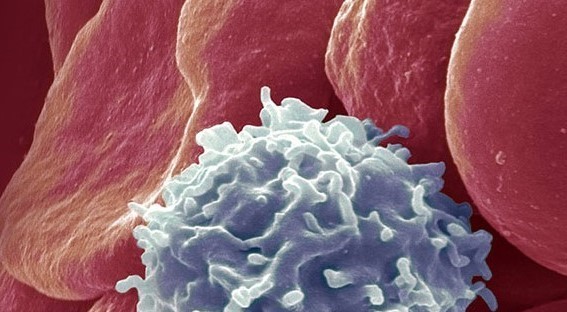 Readers Choice: The best of Leukemia 2022
Readers Choice: The best of Leukemia 2022
In this collection we highlight a selection of articles from 2022, which top the list of the journal’s most cited, downloaded and most shared (including press coverage, blogs, Twitter, Facebook and Weibo). The articles showcase the breadth of scope and coverage that the journal consistently delivers to its readers.
-
Collection |
 Cancer Disparities
Cancer Disparities
In line with the UN Sustainable Development Goal to Reduce Inequalities (SDG10), this collection aims to bring together articles enhancing our understanding of cancer health disparities across the different dimensions of inequality research. There are many expanding fields of health inequalities research but this collection will include articles examining disproportionate cancer burdens in populations such as: rural-urban, gender/sexual, racial/ethnic, religious minority and socioeconomic status groups, and of course any group where health inequality needs to be addressed. This wider collection builds upon our existing collections more specifically focused on Racial and ethnic disparities in cancer and Racial and ethnic disparities in cancer in the US We are building an ongoing knowledge base of content from across all oncology journals to increase the discoverability of articles in this important research area. Thus, we call for new contributions to this collection and invite you to read recent research below.
Open for submissions -
Collection |
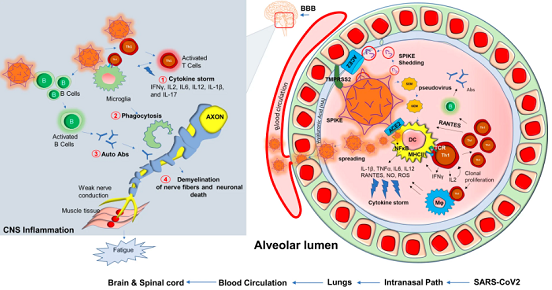 Long-term Impact of COVID in Cancer Patients
Long-term Impact of COVID in Cancer Patients
This collection is dedicated to the impact of the COVID-19 pandemic in cancer healthcare. We are particularly interested in research examining the long-term impact for patients with cancer. To increase the discoverability of scientific literature related to COVID-19 cancer research, here we bring together key articles from across a series of oncology journals. We welcome future submissions to expand this collection further.
Image: Gottschalk et al.Open for submissions -
Collection |
 Classification and nomenclature of hematologic diseases
Classification and nomenclature of hematologic diseases
The World Health Organization (WHO) Classification of Tumours provides a definitive classification of all tumours, worldwide. This is essential to underpin the diagnosis and treatment of cancer, as well as research and education. Without it, clinical trial results could not be compared between countries, research results could not be evaluated collectively and epidemiological studies based on cancer registration would be impossible. The classification will help move the field forward by being based on a forwardlooking multidisciplinary effort grounded in genetic advances, with an eye on worldwide applicability. An overview of the classification and its salient features are provided in two typescripts, which cover the classification of myeloid and histiocytic/dendritic neoplasms and the classification of lymphoid neoplasms. Added to this is the recent 'HUGO Gene Nomenclature Committee (HGNC) recommendations for the designation of gene fusions'. In this typescript a group of experts under auspices of the Human Genome Organization’s (HUGO) Gene Nomenclature Committee (HGNC) proposes using double colons (::) as the official designation for fusion genes. The Leukemia Editors strongly support the HGNC recommendation and request authors use the HGNC nomenclature in submissions to Leukemia and other journals. The goal of HUGO and HGNC is to provide unique symbols and names for human gene loci including protein coding genes, non-coding RNA genes and pseudogenes with the purpose of unambiguous scientific communication.
-
Collection |
 Racial and ethnic disparities in cancer
Racial and ethnic disparities in cancer
The Institute of Medicine defines disparities as “racial or ethnic differences in the quality of health care that are not due to access-related factors or clinical needs, preferences, and appropriateness of intervention.” This was certainly well demonstrated in the recent COVID pandemic where there were marked differences in morbidity and mortality in minority groups. These inequalities occur in all age groups and diseases compared to non-minorities. A disproportionate number of cancer deaths occur among racial and ethnic minorities in most Western countries. The causes have been extensively investigated and highlighted, and include a wide range of intersecting problems. Thus, the system itself, access to the system, communication, nutrition, education, housing, job stability, trust amongst others. Many extensive reviews have been published but if anything the problems are becoming worse with a decrease in standard of living, health care budgets and education. In this collection we publish a range of original research and reviews from the British Journal of Cancer, Leukemia and Blood Cancer Journal highlighting the problems and suggesting solutions to some of these issues. The editors welcome future submissions to expand this collection further.
-
Collection |
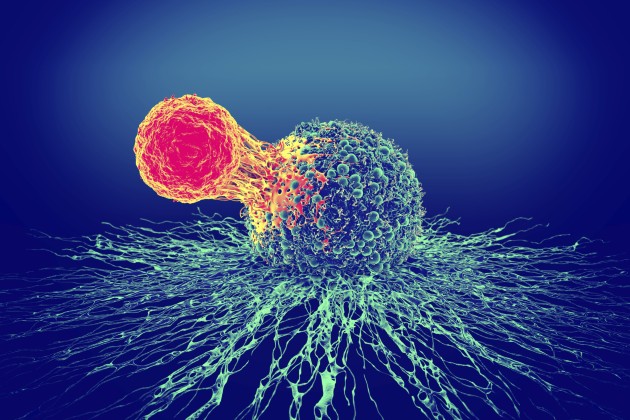 CAR T-cell therapy in cancer
CAR T-cell therapy in cancer
Cancer therapy using chimeric antigen receptor (CAR)-T-cells is one of the most exciting recent developments in cancer therapy. To date CAR-T-cells have been successfully used to treat persons with hematologic cancers, especially acute lymphoblastic leukemia (ALL), lymphomas and plasma cell myeloma (PCM). Although most studies are in persons with advanced lymphomas, some controversial data suggest CAR-T-cell therapy might replace autologous hematopoietic cell transplants in persons failing conventional therapies. The CAR-T-cell constructs are directed against lineage-related targets such as CD19 and CD20. Although studies of using CAR-T-cells to treat other hematologic cancers such as acute myeloid leukemia (AML) and solid cancers are progressing, these targets have proved more elusive and no CAR-T-cell therapy is yet approved. In this collection we include key research published in the journals Leukemia, Blood Cancer Journal, Cancer Gene Therapy, Journal of Cancer Research and Clinical Oncology and Medical Oncology. The editors welcome future submissions to expand this collection further.
-
Collection |
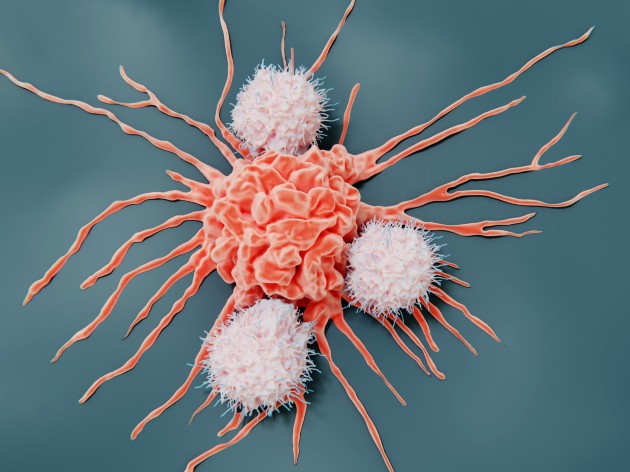 Regulatory T cells in cancer immunosuppression
Regulatory T cells in cancer immunosuppression
A paradox in tumor immunity is the co-existing of growing tumors with circulating or tissue-infiltrating tumor-reactive T cells. The inability of tumor-reactive T cells in control of tumor growth has been attributed to the presence of regulatory T cells (Treg) in cancer host. Since then, understanding the role of Treg cells has become one of the intensively studied areas in cancer immunotherapy. However, fewer options targeting Treg cells have been validated in clinical trials and therefore more preclinical and clinical studies are required to provide reliable therapeutic targets with respect to Treg cell biology. To that end, this selection will highlight recent progresses in Treg cell biology and provide new opportunities for developing new therapeutic approaches to target Treg cells. The scope and topics of this collection include but are not limited to: • The generation and accumulation of Treg cells in cancer host. • The regulatory function of Treg cells in shaping immune response to cancer. • The role of Treg cells in the prognosis of cancer and in response to immunotherapy. • Therapeutic targets in Treg cells that can promote antitumor immunity. In this collection we include key research published in the journals Leukemia, Cancer Gene Therapy and Cancer Immunology, Immunotherapy. The editors welcome future submissions to expand this collection further.
Image: Getty Images -
Collection |
 Readers Choice: The best of Leukemia 2021
Readers Choice: The best of Leukemia 2021
See what readers worldwide have been citing and sharing. In this Web Focus we highlight a selection of articles from 2021, which top the list of the journal’s most cited, downloaded and most shared (including press coverage, blogs, Twitter, Facebook and Weibo). They showcase the breadth of scope and coverage that the journal consistently delivers to its readers.
-
Collection |
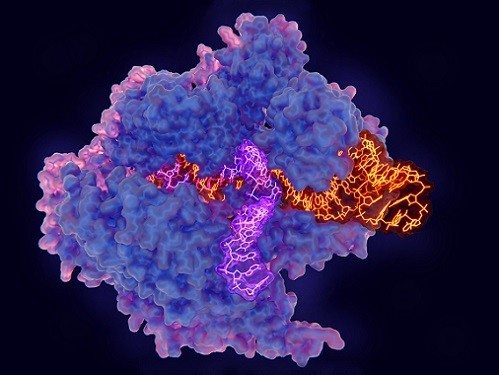 CRISPR–Cas9 in cancer research and therapy
CRISPR–Cas9 in cancer research and therapy
Since its discovery as part of the adaptive immune system in bacteria, CRISPR-Cas9 has become an invaluable tool for genome editing with the potential to transform cancer therapies. The ability to alter specific bases in DNA enables comprehensive examination of molecular pathways and the part they play in cancer with incomparable resolution. The technology is also routinely applied in cancer modelling where it enables the production of faithful models of disease, capturing the specific molecular aberrancies of different cancers. As a therapy, CRISPR-Cas9 has demonstrated promises ex vivo, in oncolytic viruses and immunotherapies; however its use in vivo is also being explored by targeting genes essential for cancer cell viability, promoting apoptosis or cell cycle arrest in tumours and thereby improve patients’ survival. Overall, CRISPR-Cas9 technology has greatly advanced cancer research and has the potential to immensely transform cancer therapies. The below collection of articles represents key research in this area published in the journals Oncogene, Oncogenesis, Leukemia, Blood Cancer Journal and Cancer Gene Therapy. The editors welcome future submissions to expand this collection further.
-
Collection |
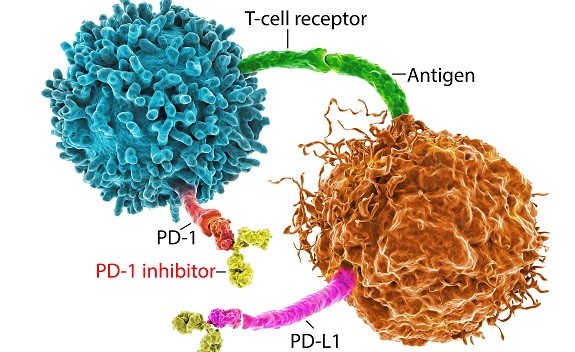 Immune checkpoint inhibitors in cancer treatment
Immune checkpoint inhibitors in cancer treatment
The advent and validation of immune checkpoint inhibitors targeting the T cell receptors PD1 and CTLA have been 'game changers' in clinical cancer therapy. Initially approved for melanoma, lung cancer, and kidney cancer these therapies have now gained substantial inroads in a diversity of tumor types as first or second-line therapy and promise to extend the lives of millions of more cancer patients. However, there is critical ongoing research attempting to optimize the therapeutic utility of these agents. Current investigations include analysis of tumor molecular profiles most apt to respond to specific checkpoint immunotherapy regimens, optimal timing of treatment and combination with chemotherapy, radiation, and molecularly targeted anti-cancer agents, and the potential to enhance responsiveness of checkpoint inhibition with concurrent use of novel therapies targeting innate or adaptive immunity. Research in all these areas has exploded at both the clinical and experimental levels. As such, these burgeoning reports comprise a valued addition and are a new cornerstone in Springer Nature's topical online collections in cancer research. The editors of the journals Oncogene, Blood Cancer Journal, Leukemia and Cancer Gene Therapy welcome future submissions to expand this collection further.
